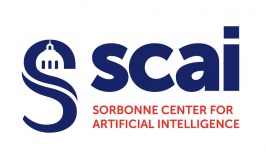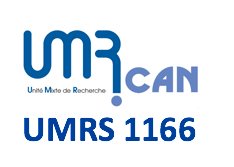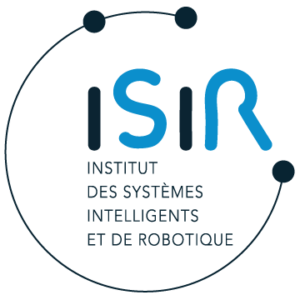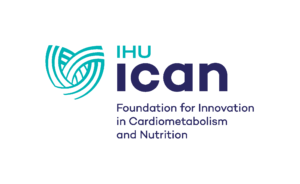 Born from the merger of Université Pierre et Marie Curie and Université Paris Sorbonne, whose campuses are in the heart of Paris, Sorbonne Université covers all major disciplinary fields and offers new transversal academic and research programs. Sorbonne Université becomes a fully multidisciplinary research-intensive university with three faculties: Humanities and Social Sciences, Medicine and Sciences & Engineering. With more than 55 600 students (among 10 200 international students), 4500 doctoral students and 6400 researchers, Sorbonne Université is one of the leading French universities. The university is involved in numerous European and International partnership agreements and has France’s largest scientific library and infrastructures bringing together the best talent in a wide array of these disciplines. With 8,500 publications per year (approx. 10% of all publications in France), Sorbonne Université is a major player in the international knowledge and innovation economy, offering transversal academic and research programs. Following its tradition in hosting excellent researchers from around the world, Sorbonne Université is engaged in the adoption of the European Charter for Researchers and the Code of Conduct for the Recruitment of Researchers. The Research and Innovation office, which is in charge of the EU projects at the university, has managed so far 150 FP7 and more than 110 H2020 projects (40 ERC grants and 45 industry-sponsored research chairs). The office will manage all the financial, administrative and legal aspects for the participation of Sorbonne Université in this project.
Born from the merger of Université Pierre et Marie Curie and Université Paris Sorbonne, whose campuses are in the heart of Paris, Sorbonne Université covers all major disciplinary fields and offers new transversal academic and research programs. Sorbonne Université becomes a fully multidisciplinary research-intensive university with three faculties: Humanities and Social Sciences, Medicine and Sciences & Engineering. With more than 55 600 students (among 10 200 international students), 4500 doctoral students and 6400 researchers, Sorbonne Université is one of the leading French universities. The university is involved in numerous European and International partnership agreements and has France’s largest scientific library and infrastructures bringing together the best talent in a wide array of these disciplines. With 8,500 publications per year (approx. 10% of all publications in France), Sorbonne Université is a major player in the international knowledge and innovation economy, offering transversal academic and research programs. Following its tradition in hosting excellent researchers from around the world, Sorbonne Université is engaged in the adoption of the European Charter for Researchers and the Code of Conduct for the Recruitment of Researchers. The Research and Innovation office, which is in charge of the EU projects at the university, has managed so far 150 FP7 and more than 110 H2020 projects (40 ERC grants and 45 industry-sponsored research chairs). The office will manage all the financial, administrative and legal aspects for the participation of Sorbonne Université in this project.
 SCAI, the Sorbonne Center for Artificial Intelligence, is a research institute of the Sorbonne Université which federates researchers from the Faculty of Science and Engineering, the Faculty of Medicine and the Faculty of Arts. Created in 2019 in a national and international context marked by competition in artificial intelligence, SCAI brings together a strategic range of modern artificial intelligence disciplines in a unique location in the heart of the Latin Quarter in Paris. SCAI aims to promote the development of interdisciplinary research projects focused on AI, in a dynamic and attractive environment. It also attracts private partners (large groups, SMEs, start-ups) through collaborative programs. SCAI strongly supports methodological research at the heart of AI (“Mathematics, Computer Science, Robotics”), as well as more contextualized research through three priority themes: “Health and Medicine”, “Climate, Environment, Universe” and “Digital Humanities”. These themes represent scientific and societal challenges, and require a major impetus from the Alliance Sorbonne Université to structure itself and valorise its data.
SCAI, the Sorbonne Center for Artificial Intelligence, is a research institute of the Sorbonne Université which federates researchers from the Faculty of Science and Engineering, the Faculty of Medicine and the Faculty of Arts. Created in 2019 in a national and international context marked by competition in artificial intelligence, SCAI brings together a strategic range of modern artificial intelligence disciplines in a unique location in the heart of the Latin Quarter in Paris. SCAI aims to promote the development of interdisciplinary research projects focused on AI, in a dynamic and attractive environment. It also attracts private partners (large groups, SMEs, start-ups) through collaborative programs. SCAI strongly supports methodological research at the heart of AI (“Mathematics, Computer Science, Robotics”), as well as more contextualized research through three priority themes: “Health and Medicine”, “Climate, Environment, Universe” and “Digital Humanities”. These themes represent scientific and societal challenges, and require a major impetus from the Alliance Sorbonne Université to structure itself and valorise its data.
 The Research Unit on Cardiovascular Diseases, Metabolism and Nutrition (UMRS 1166 Sorbonne Université, Inserm), created in 2014, brings under the same umbrella five teams dedicated to the research on cardiovascular and metabolic diseases, with internationally recognized and complementary expertise in genomics, biostatistics, molecular and cell biology, physiology and pharmacology.
The Research Unit on Cardiovascular Diseases, Metabolism and Nutrition (UMRS 1166 Sorbonne Université, Inserm), created in 2014, brings under the same umbrella five teams dedicated to the research on cardiovascular and metabolic diseases, with internationally recognized and complementary expertise in genomics, biostatistics, molecular and cell biology, physiology and pharmacology.
 The cardiovascular imaging (iCV) research team at the Biomedical Imaging Laboratory (LIB, UMRS 1146 – Sorbonne Université, Inserm, CNRS) is a research team created by a biomedical engineering researcher (N. Kachenoura) and a cardiovascular radiologist (A. Redheuil) in 2014. Their 15 team members work on the development and validation of novel MRI biomarkers to help understand aorta-left heart functional and hemodynamic coupling in aging and cardiovascular disease. Their biomarkers are mostly included in robust software solutions that are used in their local image analysis Corelab on large cohorts (>200 patients), have been distributed in national or international renowned institutions (ArtFun, designed for the evaluation of aortic stiffness from MRI images is shared with more than 20 international institutions and is currently used on more than 6000 patients worldwide and then licensed to the spin-of start-up Imageens). This team is multidisciplinary by its composition (researchers with a clinical or engineering background) and research themes (engineering for medicine) promoting a highly innovative translational research. The iCV team is leading local, national and international projects or imaging work packages (MYOCARD ATRIAL, ANR PACIFIC, PSPC PACIFIC, QUORUM, PHRC OPTIM, OBEMINAL, PICs Paris-Hopkins, ECOS-France-Argentina, FRM-Innovations, FRHTA-EyeBrain) on human tissue and animal models to design and validate proof of concept imaging tools as well as on patients’ cohorts (cardiometabolic disease, heart failure, hypertrophic cardiomyopathy) to establish the clinical value of their imaging achievements. Their recent involvement in the local AI institute (SCAI) and their readily available and annotated databases of MRI images (1500 individuals) are currently generating a new area of research, heading towards further automatization of their robust conventional image processing tools.
The cardiovascular imaging (iCV) research team at the Biomedical Imaging Laboratory (LIB, UMRS 1146 – Sorbonne Université, Inserm, CNRS) is a research team created by a biomedical engineering researcher (N. Kachenoura) and a cardiovascular radiologist (A. Redheuil) in 2014. Their 15 team members work on the development and validation of novel MRI biomarkers to help understand aorta-left heart functional and hemodynamic coupling in aging and cardiovascular disease. Their biomarkers are mostly included in robust software solutions that are used in their local image analysis Corelab on large cohorts (>200 patients), have been distributed in national or international renowned institutions (ArtFun, designed for the evaluation of aortic stiffness from MRI images is shared with more than 20 international institutions and is currently used on more than 6000 patients worldwide and then licensed to the spin-of start-up Imageens). This team is multidisciplinary by its composition (researchers with a clinical or engineering background) and research themes (engineering for medicine) promoting a highly innovative translational research. The iCV team is leading local, national and international projects or imaging work packages (MYOCARD ATRIAL, ANR PACIFIC, PSPC PACIFIC, QUORUM, PHRC OPTIM, OBEMINAL, PICs Paris-Hopkins, ECOS-France-Argentina, FRM-Innovations, FRHTA-EyeBrain) on human tissue and animal models to design and validate proof of concept imaging tools as well as on patients’ cohorts (cardiometabolic disease, heart failure, hypertrophic cardiomyopathy) to establish the clinical value of their imaging achievements. Their recent involvement in the local AI institute (SCAI) and their readily available and annotated databases of MRI images (1500 individuals) are currently generating a new area of research, heading towards further automatization of their robust conventional image processing tools.
 The Institute for Intelligent Systems and Robotics (ISIR, UMR7222 Sorbonne Université, CNRS) which belongs to the Sorbonne University and the Centre National de la Recherche Scientifique (CNRS) is a multidisciplinary research laboratory that brings together researchers and academics from different disciplines of Engineering Sciences, Medicine, Information and the Life Sciences. The scientific policy followed by ISIR aims more particularly at establishing synergies in the framework of medical and biological applications with very high challenges. In this large laboratory of about 150 members, the PIRoS (Perception, Interaction, Social Robotics) research team specializes in human-computer interaction, deep learning and computer vision, applied to a wide variety of medical contexts (surgery, psychiatry, speech therapy, etc). It is composed by artificial intelligence scientists, medical doctors and psychologists and is located in the sites of Sorbonne University and Pitié-Salpêtrière University Hospital. PIRoS themes cover a broad spectrum of applications ranging from medical diagnostics to sensory deficits, until human-machine interfaces. Assistance to people, particularly in psychopathology, neurology and neurosurgery, is also studied in the team. To address these applications, PIRoS team develops methods around Artificial Intelligence, mainly based on deep learning and reinforcement learning.
The Institute for Intelligent Systems and Robotics (ISIR, UMR7222 Sorbonne Université, CNRS) which belongs to the Sorbonne University and the Centre National de la Recherche Scientifique (CNRS) is a multidisciplinary research laboratory that brings together researchers and academics from different disciplines of Engineering Sciences, Medicine, Information and the Life Sciences. The scientific policy followed by ISIR aims more particularly at establishing synergies in the framework of medical and biological applications with very high challenges. In this large laboratory of about 150 members, the PIRoS (Perception, Interaction, Social Robotics) research team specializes in human-computer interaction, deep learning and computer vision, applied to a wide variety of medical contexts (surgery, psychiatry, speech therapy, etc). It is composed by artificial intelligence scientists, medical doctors and psychologists and is located in the sites of Sorbonne University and Pitié-Salpêtrière University Hospital. PIRoS themes cover a broad spectrum of applications ranging from medical diagnostics to sensory deficits, until human-machine interfaces. Assistance to people, particularly in psychopathology, neurology and neurosurgery, is also studied in the team. To address these applications, PIRoS team develops methods around Artificial Intelligence, mainly based on deep learning and reinforcement learning.
 The Foundation for Innovation in Cardiometabolism and Nutrition is a center of excellence in the field of cardiometabolism diseases: diabetes, obesity, liver diseases (steatosis), diseases of the heart and blood vessels. Created in 2011, the IHU-ICAN is a scientific cooperation foundation whose mission is to accelerate the fight against cardiometabolic diseases. These pathologies, chronic diseases, upset the lives of millions of people (children and adults) and represent the leading cause of death in France.
The Foundation for Innovation in Cardiometabolism and Nutrition is a center of excellence in the field of cardiometabolism diseases: diabetes, obesity, liver diseases (steatosis), diseases of the heart and blood vessels. Created in 2011, the IHU-ICAN is a scientific cooperation foundation whose mission is to accelerate the fight against cardiometabolic diseases. These pathologies, chronic diseases, upset the lives of millions of people (children and adults) and represent the leading cause of death in France.

